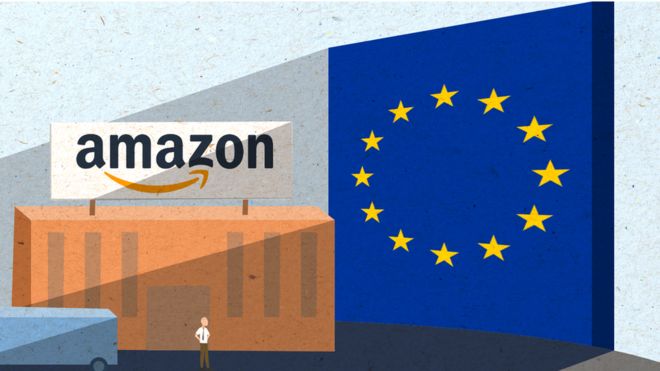Covid-19 has not been a harbinger of doom for Amazon, unlike the case with many other firms.
Its share price has actually increased since March – hitting a record high last week.
It turns out online retail isn’t a bad space to be in when all the shops are shut. Jeff Bezos’ mantle as the richest man on the planet seems safe, for now.
But around the world, governments are looking at Amazon and asking whether the tech giant is – well – too big.
Does it use its dominant position unfairly?
The EU now looks set to charge Amazon for anti-competitive behaviour. This could cost Amazon a lot of money and could alter the shopping experience it offers customers.
What is the EU doing?
Central to the EU’s concerns is Amazon’s dual role.
It runs an online store and also sells its own products on that platform. The criticism is, that it’s both the player and the referee.
 Image copyrightGETTY IMAGES
Image copyrightGETTY IMAGESSpeaking to the BBC last year, the EU’s competition enforcer Margrethe Vestager said: “We never accept in a football match that one team was also judging the game”.
What might Amazon be charged with?
Much of the EU’s concerns are thought to centre around the data that Amazon has access to and how it uses it. It can see sensitive commercial information on third-party products – like volume and price.
The big question is – is the company using that data to give Amazon’s own products an unfair advantage?
For example, The Wall Street Journal has reported that Amazon accessed third-party seller data to develop its own products.
In other words, Amazon understands what sells well on its platform – and can then simply replicate what sells best.
There are other accusations too.
If you buy a product on Amazon, you’ll get other similar products suggested to you in a pop-up called a ‘Buy Box’.
If you’re in the business of selling stuff, having your product on Amazon’s Buy Box is – to put it mildly – a good thing.
But does Amazon unfairly promote its own products at the expense of third parties? The EU is sniffing around this area.

